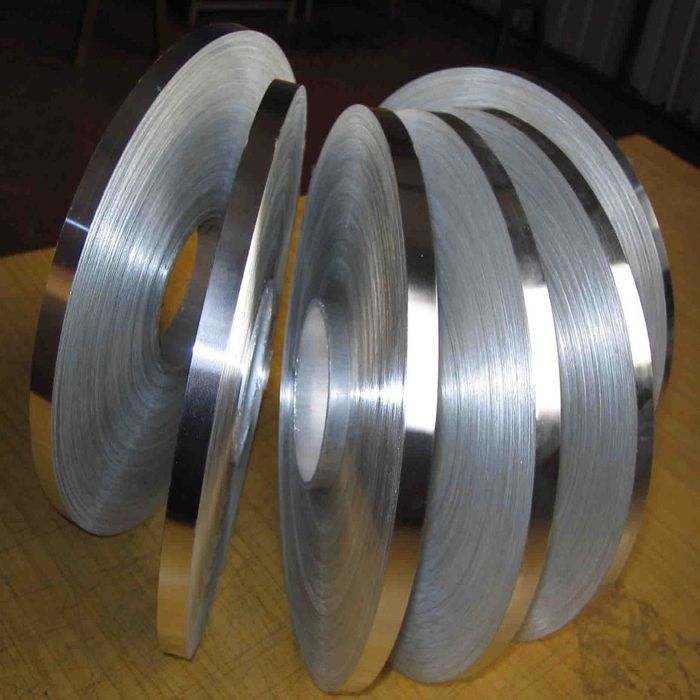Strip steel, also known as rolled steel strip, refers to a thin, flat section of steel that is widely used across various industries. It is available in different types, with 304 stainless steel strips being one of the most popular due to their exceptional strength, corrosion resistance, and versatility. In this article, we will explore the primary uses of strip steel, the benefits of using stainless steel strips, and how 304 stainless steel strip suppliers play a crucial role in meeting industry demands.
Types of Strip Steel
Strip steel can be broadly categorized into two types based on its production process:
1. Hot Rolled Strip Steel
The hot rolled strip steel is manufactured by rolling heated steel through a series of rollers to achieve the desired thickness. It is generally less precise in terms of dimensions and has a rougher surface compared to cold-rolled strips. However, it is more cost-effective and is often used in applications where surface finish is not critical.
2. Cold Rolled Strip Steel
Cold-rolled strip steel undergoes additional processing to improve its dimensional accuracy and surface finish. It is stronger and has a smoother surface, making it ideal for applications requiring tight tolerances and aesthetic appeal.
Among the cold-rolled varieties, 304 stainless steel strips are particularly popular due to their superior mechanical properties and corrosion resistance.
Applications of Strip Steel
1. Automotive Industry
Strip steel is extensively used in the automotive industry for manufacturing various components such as body panels, trims, exhaust systems, and structural parts. The flexibility, strength, and lightweight nature of strip steel make it ideal for these applications. Stainless steel strips, especially those made of 304 grade, are favoured for their ability to withstand harsh environmental conditions, including exposure to moisture and road salts.
2. Construction Industry
In the construction industry, strip steel is used for fabricating structural elements, roofing components, and decorative features. Stainless steel strips offer a sleek and modern appearance, making them ideal for architectural applications. Additionally, 304 stainless steel strip suppliers provide high-quality materials that meet the stringent requirements of construction projects.
3. Electronics and Electrical Industry
The electronics industry relies heavily on strip steel for producing components such as connectors, terminals, and shielding materials. Stainless steel strips are preferred for their conductivity, corrosion resistance, and strength. Cold-rolled 304 stainless steel strips are widely used in this sector due to their excellent surface finish and dimensional accuracy.
4. Household Appliances
Household appliances such as refrigerators, dishwashers, ovens, and washing machines often incorporate stainless steel strips in their design. The durability and rust resistance of 304 stainless steel makes it the material of choice for these applications. Many 304 stainless steel strip suppliers cater specifically to this market by offering custom-sized strips to meet the unique requirements of appliance manufacturers.
5. Aerospace Industry
The aerospace industry demands materials with high strength-to-weight ratios, excellent heat resistance, and superior corrosion resistance. Stainless steel strips are used for various components, including fasteners, brackets, and structural elements. 304 stainless steel strips, known for their excellent mechanical properties, are commonly employed in these critical applications.
6. Medical Equipment
The medical sector requires materials that are not only strong and durable but also resistant to corrosion and easy to sterilize. Stainless steel strips are used in medical devices, surgical instruments, and hospital equipment. Thanks to their biocompatibility and corrosion resistance, 304 stainless steel strips are a preferred material in this field.
Benefits of Using 304 Stainless Steel Strips
1. Corrosion Resistance
One of the primary advantages of 304 stainless steel strips is their outstanding corrosion resistance. This makes them suitable for use in environments where exposure to moisture, chemicals, and harsh weather conditions is common.
2. Strength and Durability
304 stainless steel is known for its high tensile strength, making it ideal for applications requiring durability and structural integrity. The strength of these strips ensures that they can withstand heavy loads and maintain their shape over time.
3. Aesthetic Appeal
The smooth surface finish and natural shine of 304 stainless steel strips make them ideal for applications where appearance matters, such as in architectural designs and household appliances.
4. Ease of Fabrication
304 stainless steel strips can be easily cut, welded, and formed into various shapes, making them versatile for a wide range of applications. This ease of fabrication allows manufacturers to create custom components quickly and efficiently.
5. Availability
With numerous 304 stainless steel strip suppliers operating in the market, it is relatively easy to source high-quality strips in various sizes and specifications. This availability ensures that industries can meet their production requirements without delays.
How to Choose the Right 304 Stainless Steel Strip Supplier
Selecting the right supplier is crucial for ensuring the quality and reliability of stainless steel strips. Here are some factors to consider when choosing a 304 stainless steel strip supplier:
1. Quality Standards
Ensure that the supplier adheres to international quality standards, such as ISO 9001, to guarantee that the materials meet industry specifications.
2. Customization Options
Look for suppliers who offer customization options, including different thicknesses, widths, and surface finishes, to meet specific project requirements.
3. Timely Delivery
Choose a supplier with a reputation for timely delivery to avoid delays in your production process.
4. Competitive Pricing
While quality should be the primary consideration, it is also essential to compare prices among different 304 stainless steel strip suppliers to get the best value for your money.
5. Technical Support
A good supplier should provide technical support and guidance in selecting the right type of stainless steel strip for your application.
Conclusion
Strip steel plays a vital role in numerous industries due to its versatility, strength, and ease of fabrication. Among the various types available, 304 stainless steel strips stand out for their superior corrosion resistance, durability, and aesthetic appeal. Industries such as automotive, construction, electronics, aerospace, and medical equipment manufacturing rely heavily on these high-quality strips to create reliable and long-lasting products.
By sourcing materials from reputable 304 stainless steel strip suppliers , businesses can ensure that their products meet the highest standards of quality and performance. Whether you are in need of strips for structural components, electronic devices, or medical instruments, 304 stainless steel strips offer a dependable solution that delivers exceptional value.






